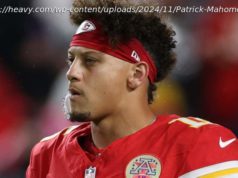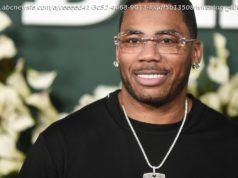It was a year ago this week when four assistant coaches — from Arizona, Oklahoma State, Auburn and USC — were arrested and charged with…
It was a year ago this week when four assistant coaches — from Arizona, Oklahoma State, Auburn and USC — were arrested and charged with fraud and corruption as part of a wide-ranging FBI investigation.
One year since corruption in college basketball made national headlines, when allegations surfaced that coaches were working with agents, sneaker company executives from Adidas and financial advisors to steer players to their schools in exchange for large sums of cash — and accepting handouts to push those players back to the financial advisors when turning pro. It sent shockwaves through the sport. It cost Hall of Fame coach Rick Pitino his job and led to the arrests of three Adidas executives, a financial advisor, an AAU coach and a former sports agent, in addition to several college assistant coaches.
And yet, as significant as the investigation seemed at the time, how many believed it would change recruiting — it did lead to the formation of a 14-member committee dubbed the Commission on College Basketball, and new rules being put in place to limit the influence sneaker companies have on high school prospects — it has not harmed the programs involved.
USC, with a pair of five-star recruits, has the consensus No. 1 recruiting class in the country. Arizona has a commitment from one of the nation’s premier point-guard prospects in Nico Mannion. Louisville, led by a new coaching staff headed by Chris Mack, has recruited exceedingly well. So has Auburn. The impact has been minimal across the board for the schools connected to the FBI investigation.
“What happened maybe was going to slow down some things, but it’s not going to stop [those programs],” said Game Elite AAU coach Chris Williams, whose program produced four-star prospects Jaylin Williams and Josh Nickelberry, who have committed to Auburn and Louisville, respectively.
For the time being, it doesn’t seem like there will be any penalties for the programs involved, at least not until the trials of the assistant coaches or sneaker executives are concluded or more evidence comes out. An NCAA spokesperson declined an interview request for this story, writing in an email: “The NCAA cannot comment on current, pending or potential investigation.”
“No one cares and there’s no penalties,” one high-major coach said, speaking on condition of anonymity.
It did have an effect initially. Arizona’s class unraveled, though the Wildcats ultimately were able to keep four-star guard Brandon Williams, who had de-committed. Louisville lost lone recruits Anfernee Simons and Courtney Ramey. Auburn saw five-star forward EJ Montgomery leave for Kentucky. USC lost four-star forward J’Raan Brooks, only to get him back several months later.
As time has passed, the issues have been mostly forgotten. Corey Evans, a national recruiting analyst for Rivals.com, never expected the scandal to alter the plans of five-star prospects. Many of them consider themselves one-and-done before going pro, so barring a death penalty situation, long-term ramifications wouldn’t affect them. In talking to prospects and coaches, Evans said the focus is on what the schools can offer, not about what happened last September.
“It’s a quick discussion and it’s in the past,” he said. “If I’m a prospect and I’m a little in the dark, the coach says nothing is going to happen, and nothing has happened, who are you going to believe?”
That echoed what one NCAA staffer connected to a program that was tied to the scandal said. His school isn’t even asked about the scandal in recruiting anymore. The initial concern was about potential probation or postseason bans, but that has faded.
“The only thing that’s changed is the new recruiting calendar,” the staffer said. “We’re back to normal. I can’t point to anything significant that has changed.
“I don’t think these kids were even thinking about it. It’s not like we opened recruiting calls with it. It just died off.”
In Rivals’ current recruiting rankings, four of the top 14 teams — USC (1), Louisville (3), Auburn (7) and Arizona (14) — were part of the scandal. Williams said Auburn and Louisville had their respective athletic directors meet with the families of his prospects, easing any concerns they had. After leading shorthanded Auburn — the Tigers were without starters Danjel Purifoy and Austin Wiley last season because of their role in the allegations — to a share of the SEC crown and receiving support of his new athletic director, coach Bruce Pearl has put together a stellar three-man class. Mack has yet to encounter any issues in recruiting, stockpiling a five-man class that includes a quartet of four-star recruits.
USC hired Eric Mobley to fill the spot left by arrested assistant coach Tony Bland, which led to their monster class, which includes Mobley’s five-star son, Isaiah. But it doesn’t explain the rest of the star-studded five-man group.
“That’s the most surprising of all, that USC is actually recruiting better than they were before it,” Evans said.
The Trojans are emblematic of the scandal a year later. Not only has it not negatively impacted recruiting for the programs that were tied to the FBI investigation, the schools in question are thriving.






